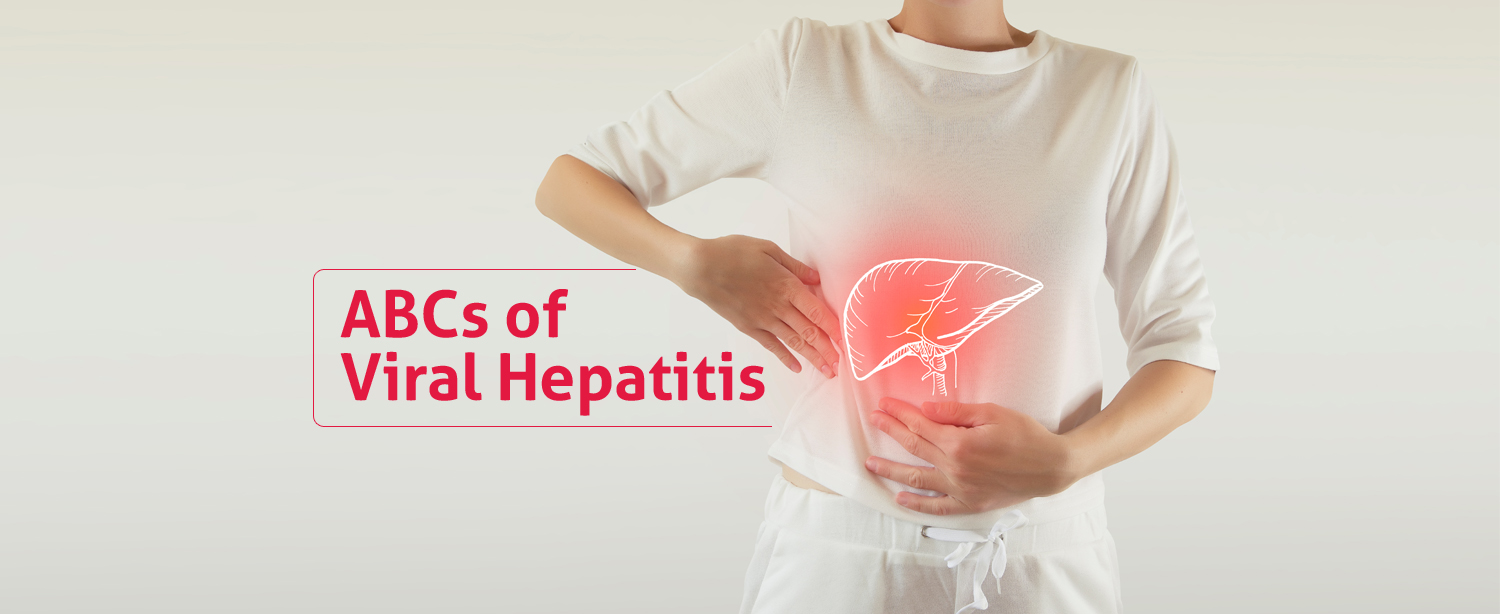Suspect a liver infection? Get yourself tested for hepatitis. Recent statistics suggest that India has around 4 crore people infected with hepatitis B and about 1.2 crore people infected with hepatitis C. Hepatitis is an inflammation of the liver that is caused by a wide variety of infectious viruses. It is a widespread and potentially life-threatening liver infection that affects millions of people worldwide. Understanding hepatitis is crucial for prevention, early diagnosis, and appropriate management to reduce the burden of this disease.
Types of Hepatitis:
There are five main types of hepatitis: Hepatitis A, Hepatitis B, Hepatitis C, Hepatitis D, and Hepatitis E.
- Hepatitis A
Hepatitis A is usually contracted through the ingestion of contaminated food or water. It is prevalent in areas with poor sanitation and is commonly associated with travel to certain regions. Symptoms of Hepatitis A may include fever, fatigue, loss of appetite, nausea, vomiting, and jaundice. There is no specific treatment for Hepatitis A, and the infection typically resolves on its own. Supportive measures like rest and proper hydration are recommended. - Hepatitis B
Hepatitis B is primarily transmitted through contact with infected blood, bodily fluids, sexual contact or from an infected mother to her newborn during childbirth. Hepatitis B can lead to chronic liver disease, and some individuals may become carriers of the virus without showing symptoms. Early diagnosis and appropriate management are crucial to prevent complications and reduce the risk of transmission. Antiviral medications are available to manage chronic Hepatitis B and prevent liver-related complications. Vaccination is essential to prevent Hepatitis B infection. - Hepatitis C
Hepatitis C is mainly spread through contact with infected blood, often through the sharing of needles by intravenous drug users. It can also be transmitted through unsafe medical practices, such as blood transfusions before screening measures were implemented. Left untreated, it can lead to chronic liver disease, cirrhosis, and liver cancer. Timely diagnosis and advances in antiviral medications have significantly improved the treatment outcomes for Hepatitis C. - Hepatitis D
Hepatitis D only occurs in individuals who are already infected with Hepatitis B. It is considered one of the most severe forms of hepatitis. It is transmitted through contact with infected blood and sexual contact. Preventing Hepatitis B infection is the key to avoiding Hepatitis D. Treatment options for Hepatitis D are limited, and management often involves treating the underlying Hepatitis B infection. - Hepatitis E
Hepatitis E is typically transmitted through the consumption of contaminated water, similar to Hepatitis A. While it is generally self-limiting, pregnant women infected with Hepatitis E are at a higher risk of severe complications, including mortality.
Prevention of Hepatitis
Here are some helpful healthy living practices to reduce your risk of hepatitis:
- Vaccination
Vaccines are available for Hepatitis A and B. Vaccination is the most effective way to prevent these infections and their complications. - Safe Hygiene
Practicing good hygiene, especially handwashing, can prevent the spread of Hepatitis A and E. - Safe Sexual Practices
Using barrier methods such as condoms during sexual activity can reduce the risk of contracting Hepatitis B and C. - Avoiding Sharing Needles
Intravenous drug users should never share needles or other equipment to prevent the transmission of Hepatitis B and C.
Hepatitis care at Kokilaben Dhirubhai Ambani Hospital, Mumbai
Have you been experiencing stomach ache, loss of appetite, or seeing jaundice like yellow eyes and skin? It is time you get a complete liver check-up done and rule out any signs of hepatitis. Understanding the types, modes of transmission, and available treatment options for hepatitis is crucial in curbing the spread of this infectious disease. Consult experts at our Department of Hepato Pancreato Biliary for a detailed diagnosis and prompt treatment for hepatitis. For further information, please visit: https://www.kokilabenhospital.com/departments/clinicaldepartments/hepatopancreatobiliary.html


